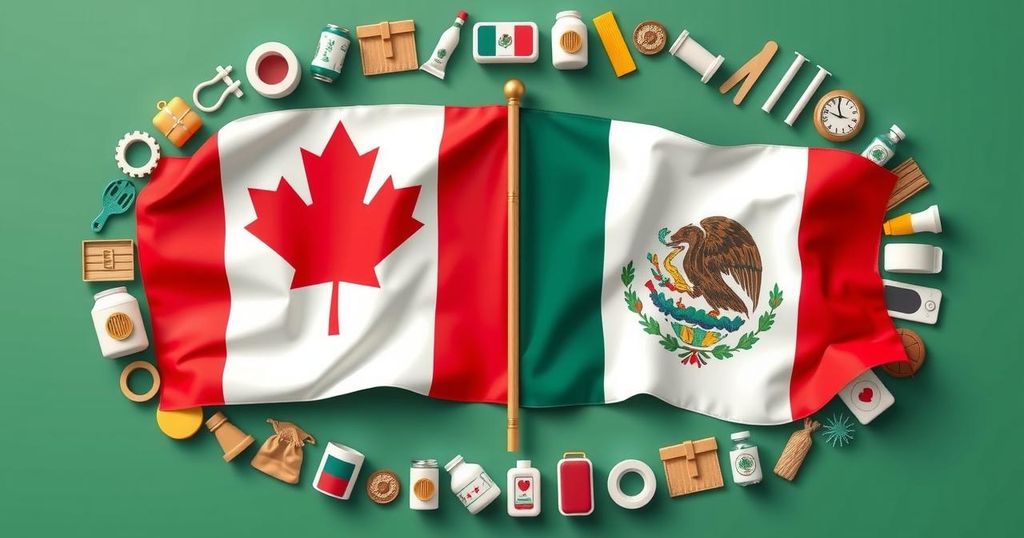On April 2, 2024, Trump announced reciprocal tariffs, exempting Canada and Mexico. Existing tariffs, notably a 25% duty on imports, still apply. The USMCA also keeps goods from these countries exempt. Trade relations remain tense, particularly with other nations facing significant new tariffs.
On April 2, 2024, President Donald Trump announced reciprocal tariffs aimed primarily at various nations while exempting Canada and Mexico from this new set of charges. The announcement described the US as being “looted, pillaged, raped, plundered” by international trade practices. The tariffs introduced a baseline charge of 10% and could escalate to as much as 45% on goods from other countries.
Despite their exemption, Canada and Mexico still face existing tariffs, including a 25% duty on certain imports and a lower rate on Canadian energy. New tariffs concerning automotive products are set to launch shortly. Their exemption from the new April tariffs stems from prior levies that remain active, including the 25% duties on fentanyl-related products.
The US-Mexico-Canada Agreement (USMCA) keeps goods from these nations exempt from the newest reciprocal tariffs. However, if Canada and Mexico engage in negotiations regarding these tariffs, they could be impacted by Trump’s new rates. Canadian Prime Minister Mark Carney has stated, “We are going to fight these tariffs with counter-measures. We are going to protect our workers.”
Other nations were included in Trump’s reciprocal tariffs, with varying rates established: India faces a 26% tariff, the EU is set for 20%, and countries like Vietnam and Japan have rates of 45% and 24% respectively. China, with a notable trade surplus with the US, is to endure a significant 34% tariff, which may reach 54% when combined with previous levies.
Countries like Russia, Cuba, Belarus, and North Korea are exempt as they are already under sanctions, which prevent substantial trade. As trade policies evolve, implications for global trade dynamics will continue to develop under the stewardship of international agreements and tariffs.
In summary, Canada and Mexico successfully avoided Trump’s new reciprocal tariffs introduced on April 2, 2024, largely due to existing tariffs already in place. While they may be shielded under current agreements, the tension over trade remains, particularly as negotiations could lead to new tariffs. Understanding these dynamics is critical in the context of international trade policy as the US navigates its global relations amidst ongoing tariff updates.
Original Source: www.hindustantimes.com






